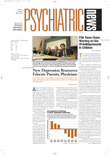Looking and sounding as though he were still on the campaign trail, Sen. John Kerry (D-Mass.) chided President Bush for what he claimed was the administration's neglect of an estimated 11 million children without health insurance.
In an address that had the look and feel of a campaign stop, Kerry also announced his own Kids First Act of 2005, introduced the same week in Congress, to address that problem.
Speaking to a gathering of health care advocates in Washington, D.C., sponsored by Families USA, Kerry mocked the domestic agenda of the president, who was that same day in Cleveland, Ohio, touting his plans for expanding access through tax credits and health savings accounts.
“His effort is the same window dressing—avoidance of reality that we've seen the last four years,” Kerry said. “Unfortunately, the White House plan for health care will... decisively repudiate the national responsibility to promote quality, affordable health care at a time when health care is unmistakably a national challenge.
“Pare back all the rhetoric,” he continued, “and the White House plan is this: raise premiums with a phony small-business health plan; pretend the answer for families struggling to afford insurance is just another tax cut for the wealthy that leaves them behind; and, while we're at it, dump the responsibility for covering low-income families and their kids on the states and let them take the heat for dumping them altogether.
“That's how the president who promised to usher in a `responsibility era' proposes to deal with a real and present health care crisis, even as he seeks to hype a phony crisis in Social Security,” Kerry said.
The Massachusetts senator explained his new plan, “Kids First,” which he had introduced in Congress just days before. The plan focuses on expanding enrollment of children in the Medicaid and State Children's Health Insurance Program (SCHIP) through a series of incentives aimed at states and parents.
Under the plan, the federal government would pay for all Medicaid outreach and coverage costs for children under age 21 in families whose incomes are at or below the poverty level ($15,670 annual income for a family of three). In exchange, the state would agree to cover children under age 21 in families with incomes at or below 300 percent of the poverty level ($47,010 annual income for a family of three) through SCHIP or Medicaid.
To claim the federal tax credit, parents must insure all children under age 19 and show proof of that coverage. Forfeited child tax credits would finance automatic enrollment in the SCHIP program.
The Kerry plan also includes the following proposals:
•
Allowing higher-income parents the right to buy into the SCHIP program for their children at cost.
•
Allowing parents to use the SCHIP subsidy to purchase qualified employer-sponsored coverage.
•
Providing tax credits to higher-income parents to maintain coverage affordability. Parents would not be required to spend any more than 5 percent of their adjusted gross income on health care premiums for their children under age 19.
“Instead of dumping the problem on cash-strapped states with a severance check and best wishes for success, my proposal offers states a new bargain,” Kerry said. “The national government will give states significant, immediate fiscal relief in exchange for a state commitment not only to cover all kids, but to aggressively make sure they get the coverage they're eligible for. That means cutting out the red tape and bureaucratic obstacles that are responsible for about two-thirds of the gap between kids who are eligible and kids who actually get covered. And it is a net plus in dollars to cash-strapped states.”
Kerry also stressed the responsibility of parents to seek out insurance coverage for their children.
“We will make it possible for them to use money set aside for children's health care to buy employer-sponsored coverage where it's available, and we will also allow parents who don't normally qualify for public programs to buy coverage for their kids at cost and to maintain current coverage at an affordable cost,” Kerry said. “Their side of the bargain is to take advantage of these tools to get their kids covered, and if they don't exercise this basic parental responsibility, they will not be able to claim the child tax credit on their federal tax returns.
“I don't think that's too much to ask. If we believe drivers have a responsibility to buy car insurance, surely we believe parents have a responsibility to buy health insurance for their kids.”
Finally, Kerry said his plan would be financed by rolling back administration tax cuts for those in the highest income brackets. Specifically, he referred to individuals earning “well over $300,000 per year.”
“A portion of the Bush tax cuts benefiting these most-fortunate citizens would be repealed, making the top rate a bit closer to the rate under which wealthy individuals did so spectacularly during the 1990s.”
The text of the Kids First Act of 2005 can be accessed at<http://thomas.loc.gov> by searching on the bill number, S 114. ▪

